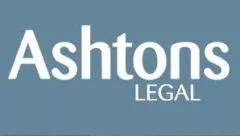As your business has to comply with a multitude of regulations and licencing requirements, there is a fair chance that you could, at some stage, be investigated by one of the UK's many government enforcement agencies.
How a business deals with this is critical – and significant mistakes can be avoided by the taking of early legal advice. It is not only Police that investigate criminal matters but agencies such as the Health & Safety Executive (HSE), the Environment Agency, HMRC, Border Force and local councils who also deal with matters such as waste, alcohol and event licensing, trading/food standards and safety.
Broadly speaking, their powers and investigation methods are similar. An investigation may start because something specific has happened (such as an accident or pollution) or because licencing requirements are not being complied with, e.g. waste offences where there may be no permit or the maximum amounts allowed to be stored/treated are exceeded.
Enforcement officers from the relevant agency will have statutory powers to access premises and evidence. They can issue notices requiring the production of documentation and information, failing which an offence may be committed of itself.
Where the agency suspects that an offence may have been committed, they will invite the business to attend an interview under caution under the provisions of the Police & Criminal Evidence Act 1984 (PACE). Most agencies do not have a power of arrest, and such interviews are voluntary. However, such requests need to be carefully managed to determine whether or not to attend, decline to attend or provide a voluntary written statement under caution in conjunction with or in lieu of attendance at the interview.
Such interviews are a crucial stage of any investigation – it is where legal advice should be taken – and where things can go very badly wrong.
It must be understood that when sole traders and partners are being interviewed, they may be explaining the conduct of their business but are speaking in a personal capacity. They are being investigated for their personal criminal behaviour.
Where a limited company is being investigated, the interviewee (e.g. a Director) will speak on behalf of that limited company. However, the investigation team may also wish to speak to Directors, Company Secretaries and any other management or staff in their own personal capacity regarding their own criminal liability. So, it is not as though limited company status is a shield in all circumstances. Again, this needs careful thought and handling.
The reason it is important to get legal advice at an early stage is so that important tactical decisions can be made. A view of the case as a whole needs to be taken at the outset. It is not just a case of getting beyond the investigation and interview stage – thought needs to be given as to what might happen in due course if there is a prosecution. What evidence is there? What witnesses need to be spoken to at an early stage? What documentation needs to be retained, etc.?
Businesses may feel that it is unlikely that they will end up being investigated. However, things happen despite the best intentions and compliant systems. An investigation, not to mention a prosecution, can have a significant commercial and human impact and is extremely stressful, with costly and distracting loss of time that would otherwise be devoted to the business. Court proceedings can lead to significant financial penalties (including large prosecution costs) that may be avoided if, at an early stage, the correct decisions are being made when the case starts to be investigated.
The content of this article is intended to provide a general guide to the subject matter. Specialist advice should be sought about your specific circumstances.


